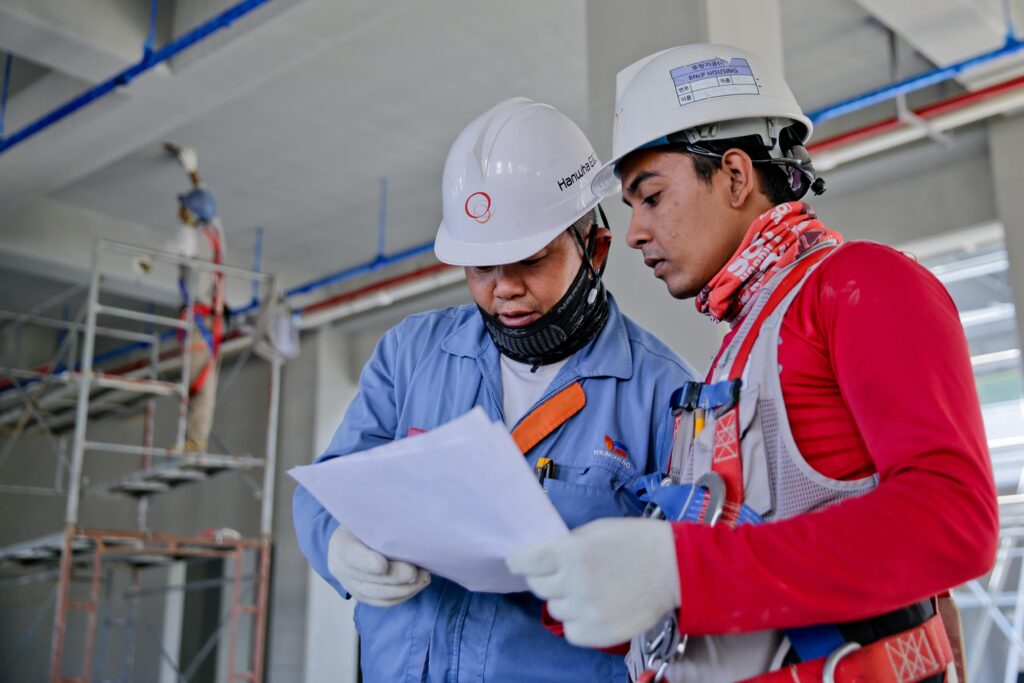Hiring a roofing contractor is a critical decision for any homeowner or business owner. The roof is one of the most vital components of a building, providing protection from the elements and contributing to overall structural integrity. Therefore, selecting the right professional for the job is not just a matter of convenience but also of safety and quality.
When it comes to roofing, not all contractors are created equal. The market is flooded with options, each promising the best services at competitive prices. However, making an informed choice requires more than just picking the first name that appears in a search. It involves understanding the nuances of the trade and recognizing the importance of credentials, experience, and reputation.
In this guide, we will explore the top five common mistakes people make when hiring a roofing contractor. By understanding these pitfalls, you can ensure a smoother process and a more satisfactory outcome. Additionally, we will provide tips on how to select the right contractor for your needs, ensuring peace of mind and a job well done.

Mistake #1: Not Checking for Proper Licensing and Insurance
One of the most common mistakes is failing to verify whether a roofing contractor holds the necessary licenses and insurance. Licensing ensures that the contractor has met specific standards set by local authorities, demonstrating their capability and knowledge in the field. Without this verification, you risk hiring someone who may not be qualified for the job.
Insurance, on the other hand, is crucial for protecting both the contractor and the client. If an accident occurs during the roofing project, a contractor without proper insurance can leave you liable for any injuries or damages. This can result in unexpected expenses and legal complications that could have been easily avoided.
To prevent these issues, always request proof of licensing and insurance before hiring a roofing contractor. Check with local licensing boards to verify the information provided. A reputable contractor will have no problem supplying this documentation, giving you peace of mind and protecting your investment.
Mistake #2: Hiring Based on Price Alone
While it might be tempting to opt for the lowest bid when selecting a roofing contractor, this approach can lead to significant problems down the line. The adage “you get what you pay for” often rings true in the construction industry. A lower price might mean the contractor is cutting corners, using subpar materials, or lacking the necessary experience.
Quality should never be compromised for cost, especially when it comes to roofing. A poorly executed roofing job can result in leaks, structural damage, and other costly repairs in the future. Investing in a higher-quality service upfront can save you money and headaches in the long term.
Instead of focusing solely on price, consider the overall value offered by the contractor. Evaluate their experience, reputation, and the quality of materials they use. Request detailed estimates and compare them based on these criteria to make an informed decision that balances cost with quality.
Mistake #3: Failing to Get a Written Estimate
A written estimate is a fundamental part of any home improvement project, yet many people overlook this essential step. Verbal agreements can lead to misunderstandings and disputes, as they leave room for discrepancies in terms of scope, cost, and timeline. Without a written estimate, you may find yourself facing unexpected charges or delays.
A comprehensive written estimate should outline all aspects of the project, including labor costs, materials, timeline, and any additional services. This document serves as a reference point for both parties, ensuring that everyone is on the same page and that the project proceeds smoothly.
Before signing any contract, insist on a detailed written estimate from your roofing contractor. Review it carefully and ask questions if anything is unclear. This proactive approach will help prevent surprises and ensure transparency throughout the project.
Mistake #4: Overlooking the Importance of a Contract
A formal contract is a crucial component of any roofing project, yet it is often neglected in the hiring process. A contract not only outlines the expectations and responsibilities of both parties but also provides legal protection in case of disputes. Without a contract, you lack recourse if the contractor fails to deliver on their promises.
A well-drafted contract should include details such as the scope of work, payment terms, project timeline, and warranty information. It should also specify how changes to the project will be handled and outline procedures for resolving disputes. Both parties should agree to these terms before any work begins.
Do not proceed with a roofing project without a signed contract. Take the time to review it thoroughly and seek legal advice if necessary. A solid contract will protect your interests and help ensure a successful project outcome.
Mistake #5: Not Researching the Contractor’s Reputation
A contractor’s reputation is a vital indicator of their reliability and quality of work. Failing to research a contractor’s background can lead to hiring someone with a history of poor performance or unethical practices. Fortunately, with the wealth of information available online, researching a contractor’s reputation has never been easier.
Start by checking online reviews and testimonials from previous clients. Look for patterns in the feedback, paying attention to any recurring complaints or praises. Additionally, consider reaching out to local trade associations or the Better Business Bureau for further information on the contractor’s standing.
Do not underestimate the power of word-of-mouth recommendations. Ask friends, family, or neighbors for referrals, as personal experiences can provide valuable insights. By thoroughly vetting a contractor’s reputation, you can make a more informed decision and reduce the risk of disappointment.
How to Ensure You’re Hiring the Right Roofing Contractor
Selecting the right roofing contractor involves more than avoiding common mistakes—it requires a strategic approach. Begin by compiling a list of potential candidates through online searches, recommendations, and local directories. Narrow down your options by evaluating their credentials, experience, and reputation.
Conduct interviews with the shortlisted contractors, focusing on their expertise and approach to your specific project needs. Inquire about their previous work, asking for references and examples of similar projects they have completed. This will give you a better understanding of their capabilities and style.
Finally, trust your instincts. A contractor who communicates clearly, listens to your concerns, and demonstrates a commitment to quality is likely to be a dependable choice. By taking the time to evaluate your options thoroughly, you can hire a roofing contractor with confidence.
Questions to Ask Potential Roofing Contractors
To further ensure you are making the right choice, prepare a list of questions to ask potential roofing contractors. This will help you gather essential information and assess their suitability for your project. Consider the following questions:
- What is your experience with projects similar to mine?
- Can you provide references from previous clients?
- What types of roofing materials do you recommend and why?
- How do you handle unexpected issues or changes during the project?
- What warranties or guarantees do you offer on your work?
By asking these questions, you can gauge the contractor’s expertise and professionalism. Their responses will provide insight into their approach and help you make a more informed decision.
Red Flags to Watch Out for When Hiring a Roofing Contractor
Being aware of potential red flags can prevent you from making a costly mistake when hiring a roofing contractor. Some warning signs to watch for include:
- Lack of Licensing or Insurance: As previously mentioned, this is non-negotiable.
- Pressure to Sign a Contract Immediately: Reputable contractors will give you time to review and consider their proposal.
- Unusually Low Bids: This can indicate substandard materials or workmanship.
- Negative or No Reviews: A lack of reviews or consistently negative feedback should raise concerns.
- Poor Communication: Difficulty reaching the contractor or receiving vague answers can be problematic.
If you encounter any of these red flags, proceed with caution or consider other options. Trusting your instincts and being vigilant can help you avoid potential pitfalls.
Conclusion and Final Tips
Hiring a roofing contractor is a significant decision that requires careful consideration and due diligence. By avoiding common mistakes such as neglecting to check licenses, hiring based on price alone, and overlooking written agreements, you can greatly enhance the likelihood of a successful project.
Remember to research the contractor’s reputation, ask insightful questions, and be on the lookout for red flags. Taking these steps will enable you to select a contractor who is trustworthy, experienced, and committed to delivering quality work.
Finally, maintain open communication with your chosen contractor throughout the project. This will ensure that any issues are addressed promptly and that the project stays on track. By following these guidelines, you can enjoy the peace of mind that comes with knowing your roofing needs are in capable hands.

FAQ
1) Why is it important to check a roofing contractor’s license and insurance?
Checking a contractor’s license ensures they meet local standards and are qualified. Insurance protects you from liability in case of accidents during the project. Always verify these before hiring.
2) What are the risks of hiring a roofing contractor based on price alone?
Choosing based on price alone can lead to poor quality work, subpar materials, and future repairs. It’s better to consider overall value, including experience and reputation.
3) Why should you get a written estimate from a roofing contractor?
A written estimate prevents misunderstandings by detailing costs, materials, and timelines. It ensures transparency and helps avoid unexpected charges or delays.
4) How can you research a roofing contractor’s reputation?
Check online reviews, testimonials, and ratings from previous clients. Consult local trade associations and ask for personal referrals to gauge the contractor’s reliability and quality of work.